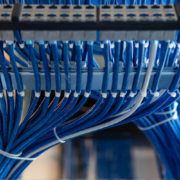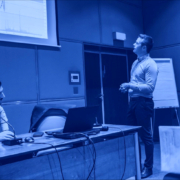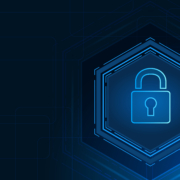How Network Cabling Clean-ups Improve Performance
For many businesses, network cabling is something people rarely think about — until there’s a problem. Yet the physical infrastructure that connects computers, phones, servers, and network devices is just as important as the software and systems it supports. A well-organized cabling system keeps data flowing smoothly, reduces disruptions, and even helps save money over time.
At Remington Computer Services, we help organizations of all sizes keep their networks not only running but optimized. One essential part of that is regular network cabling maintenance and clean-ups. Even basic adjustments can have a bigger impact on performance and reliability than many people realize.
What Is a Network Cabling Clean-up?
A network cabling clean-up is an organized review and tidy-up of the physical cables that connect your network. This can include:
- Removing unused or obsolete cables
- Replacing damaged or worn-out cables
- Re-labeling cable runs
- Organizing cables so they are properly routed and secured
- Ensuring cables are connected to the correct ports and equipment
This process isn’t just about making things look neater. It’s about improving how your network functions and making it easier to support and expand in the future.
Why Cabling Matters to Network Performance
Network cabling is the backbone of your data communications. If cables are tangled, damaged, or improperly managed, it can interfere with how data travels across your network. Clean, well-organized cabling improves performance in several key ways:
- Reduces Signal Interference
When cables are tightly tangled or run too close to electrical equipment, interference can occur. This can slow down data transmission and increase errors. Organized cabling helps keep signals clean and consistent. - Improves Troubleshooting and Repairs
When technicians can easily see where each cable goes and what it connects to, diagnosing problems becomes much faster. This reduces downtime and can lower support costs because issues are fixed more quickly. - Prevents Physical Damage
Heavy bundles, sharp bends, or unprotected cables are more likely to wear out or get damaged. A clean-up protects cables from stress and accidental pulls, helping them last longer and perform better. - Supports Better Airflow and Equipment Cooling
In network closets and server rooms, airflow is essential. Messy cabling can block vents, reduce cooling efficiency, and contribute to overheating. Organized cabling allows air to flow freely, helping equipment stay at safe operating temperatures. - Makes Future Growth Easier
As companies grow and technology changes, networks evolve. A well-labeled and organized cabling system makes it easy to add or move devices without confusion or accidental disconnections.
When a Clean-up Becomes Critical
Some signs that your network cabling needs attention include:
- Unexplained slowdowns or intermittent connectivity issues
- Frequent hardware failures or port errors
- Difficulty identifying or tracing cable paths
- A crowded or tangled cabling closet
Addressing these problems through a clean-up can often reveal issues you didn’t know were there, and prevent bigger problems down the line.
Cabling Clean-ups and Overall IT Health
Thinking of cabling as part of your regular IT maintenance can improve the overall health of your technology environment. Just like updating software or replacing old hardware, cabling clean-ups ensure your infrastructure supports your business goals, rather than holding them back.
When Remington Computer Services performs a cabling clean-up, we take a holistic approach. We assess current performance, look for areas of risk, and help you create a more efficient and reliable network foundation.
A Clean Network Starts with the Basics
Network performance isn’t only about speed and bandwidth. It’s also about stability, reliability, and ease of support. A cluttered or neglected cabling system can slow everything down, even if your equipment and internet connection are top of the line.
Simple organization and routine maintenance can go a long way toward improving performance and minimizing service disruptions. Whether you’re planning growth, troubleshooting existing issues, or just want to keep your network running smoothly, a cabling clean-up is a smart step.
At Remington Computer Services, we’re here to help you gain the most from your technology investments. A clean, organized network starts with the cables beneath your feet — and yields benefits you’ll notice every day.
Remington Computer Services has been serving the Rhode Island, Connecticut and Massachusetts area since 2010, providing IT Support such as technical helpdesk support, computer support and consulting to small and medium-sized businesses. Our experience has allowed us to build and develop the infrastructure needed to keep our prices affordable and our clients up and running. Schedule a complimentary consultation today.










